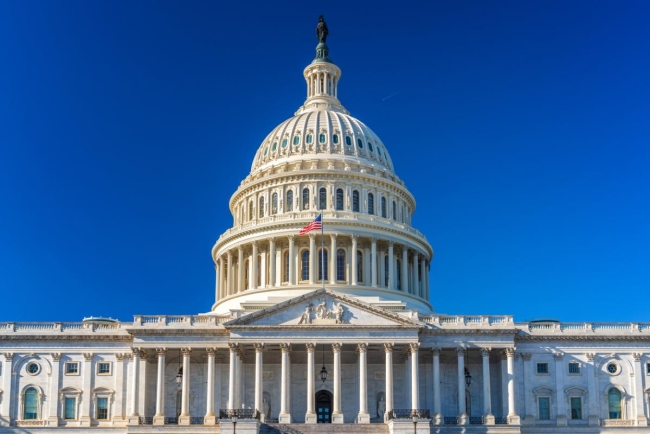You have /5 articles left.
Sign up for a free account or log in.

Congress is considering more relief for student loan borrowers.
Istockphoto.com/sborisov
While they applauded President Donald Trump for indefinitely waiving the interest on federal students loans during the coronavirus crisis, consumer groups said the move doesn’t go far enough in helping borrowers survive the economic fallout from the pandemic.
“Freezing interest will keep balances from growing during this time, and that's important,” Persis Yu, director of the National Consumer Law Center's Student Loan Borrower Assistance Project, said in a statement. “However, many borrowers are going to experience income shocks and urgent expenses that will impede their ability to make their regularly scheduled payments … Moreover, people need the confidence to know that, if they are sick or medically vulnerable or need to care for children, that they can stay home and not face the draconian consequences of defaulting on their student loans.”
Democratic lawmakers in the U.S. House and Senate, meanwhile, agreed some borrowers should get a reprieve on making student loan payments, particularly if their academic terms are disrupted by closings. House Democrats on Friday night formally introduced a bill identical to one Senator Patty Murray, the top Democrat on the Senate's health and education committee, proposed earlier in the day, which would provide a temporary exemption for students from repaying Pell Grants or student loans if their terms are disrupted.
Under current law, Pell Grant recipients would have to return a portion of their grants to the federal government if they withdraw from school, or in this case, if their institution closes.
With the House and Trump having so far only agreed to a package Friday that would extend access to coronavirus testing and provide sick-leave benefits, and the measure still needing to pass the Senate this week, the prospects of including relief for borrowers in another aid package was unclear over the weekend.
The bill, co-sponsored by Senator Chuck Schumer, the minority leader, and Senator Kirsten Gillibrand, both New York Democrats, would provide $1.2 billion in funding to provide emergency financial aid to college students for basic needs created by unexpected college closures and COVID-19-related disruptions, including food, housing, health care and childcare needs.
It would also provide $1.2 billion in funding to help K-12 school districts and higher education institutions plan for closures, including how to provide meals to students, support efforts to clean and sanitize educational facilities, and provide training to educators and other staff members on how to properly ensure their buildings are safe for students' return.
The Education Department said Trump's plan to waive interest affects all federally held loans, including Federal Family Education Loans and Perkins Loans, as well as those in forbearance and on income-driven repayment plans. More details were not available on the waiver, which will be put into place in the next week, retroactive to Friday.
Consumer groups said they want more, having asked Trump and Congress to put in place a moratorium to give borrowers a break from making any loan payments during the economic fallout from the pandemic.
"No one should fall behind on their student debts because of this national crisis," said James Kvaal, president of the Institute for College Access and Success. "Waiving interest is welcome, but the key question is whether student loan borrowers can reduce or halt their monthly payments during the crisis. Fully pausing student loan payments in addition to halting interest accumulation, and stopping punitive student loan collections, would provide much-needed, immediate relief to those individuals who may be unable to work and are facing economic hardship during this time of uncertainty."
Mike Saunders, director of military and consumer policy at Veterans Education Success, said waiving interest will only marginally help student borrowers.
"We call on President Trump to ensure borrowers, as well as all Americans, have extra cash in their pockets until this global pandemic is over," he said. "The federal government should not require Americans to prioritize payments to the government over ensuring the health and safety of their own families."




